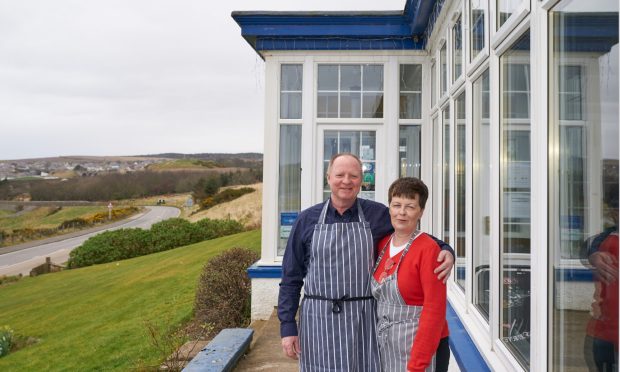The rates system is driving businesses out of Aberdeen and stifling investment in the city, an MSP has warned.
A “worrying number” of firms are demolishing premises to save money, Douglas Lumsden said.
The north-east Conservative MSP added: “The business rates system doesn’t work for Aberdeen and must be changed.”
He was speaking after it emerged 650 commercial properties have sat empty in the Granite City this tax year.
Breaking down the figures
Figures obtained under Freedom of Information rules show 389 offices, 137 industrial units and 89 shops vacant in Aberdeen during 2022-23.
A further 31 leisure premises and four healthcare facilities have also sat idle.
Many of these premises qualify for empty property relief, so the owners don’t have to pay the full whack of business rates.
What are the reliefs worth?
Industrial properties get 100% relief from rates for the first six months they’re empty.
Most other properties qualify for a 50% cut for the first three months.
But these discounts are reduced to just 10% after the initial relief period.
The owners must then pay 90% of their rates bill for a building lying empty and unproductive.
Unsurprisingly, many businesses are thought to be mulling demolition as a cheaper option.
The business rates system doesn’t work for Aberdeen and must be changed.”
Douglas Lumsden MSP.
According to the Tories, the Scottish Government missed an opportunity in its recent budget to introduce rates relief specifically for retail, hospitality and leisure businesses.
‘Alarming’ figures
Mr Lumsden believes business ratepayers in Aberdeen also deserve special treatment.
He said: “These alarming (empty property) figures highlight the rates system at present is killing businesses across Aberdeen.
Business Rates in Scotland: The poundage has been frozen at 2022/23 levels but the Small Business Bonus Scheme has been overhauled and changed. What can businesses expect from 1 April 2023?https://t.co/Z0UCFe9hio pic.twitter.com/tQXeOEaUxI
— Ryden News (@RydenNews) December 19, 2022
“Companies across the north-east are still having to pay rates based on 2015 economic conditions because the SNP government delayed the revaluation to 2023.
“We are now seeing a worrying number of firms demolishing their premises to save money, as the current rates system is driving businesses away and stifling investment in Aberdeen.
“The SNP-Green government also needs to regularise business rates to the same as the rest of the UK before more companies go out of business.”
A Scottish Government spokesperson said: “The Scottish budget 2023-24 delivers the number one ask of the business community by freezing the poundage at 49.8p, the lowest in the UK for the fifth year in a row – saving ratepayers £308 million, compared to an inflationary increase.
“This ensures around 250,000 properties in Scotland continue to be liable for a lower property tax rate than anywhere else in the UK.”
Meanwhile, the government insists its Small Business Bonus Scheme is the most generous of its kind in the UK.
It takes about 100,000 properties out of rates altogether.
Fewer empty properties in Aberdeen than last year
The empty property figures for this tax year are better than 2021-22, when 431 offices sat empty and 142 industrial units were vacant.
A further 102 shops sat idle, while 36 leisure premises and four healthcare facilities were also empty.
Businesses get 100% relief for the whole time a property is unoccupied if:
- It’s a listed building
- The rateable value is under £1,700
- It’s owned by a trustee for sequestration, liquidation or executors
- The company which owns it has been wound up
- By law, the property cannot be occupied
- It’s under a compulsory purchase order
Business rates: Why do we have them, who pays and how are they calculated?
Businesses pay no rates for empty ground, so demolition can eliminate any rates burden.
Empty property relief is being devolved to local authorities on April 1.
According to the government, the move will deliver “greater fiscal empowerment.
Explaining current tax policy, the my.gov.scot website says it will allow councils to administer any support for unoccupied properties “in a way that is tailored to local needs”.




Conversation